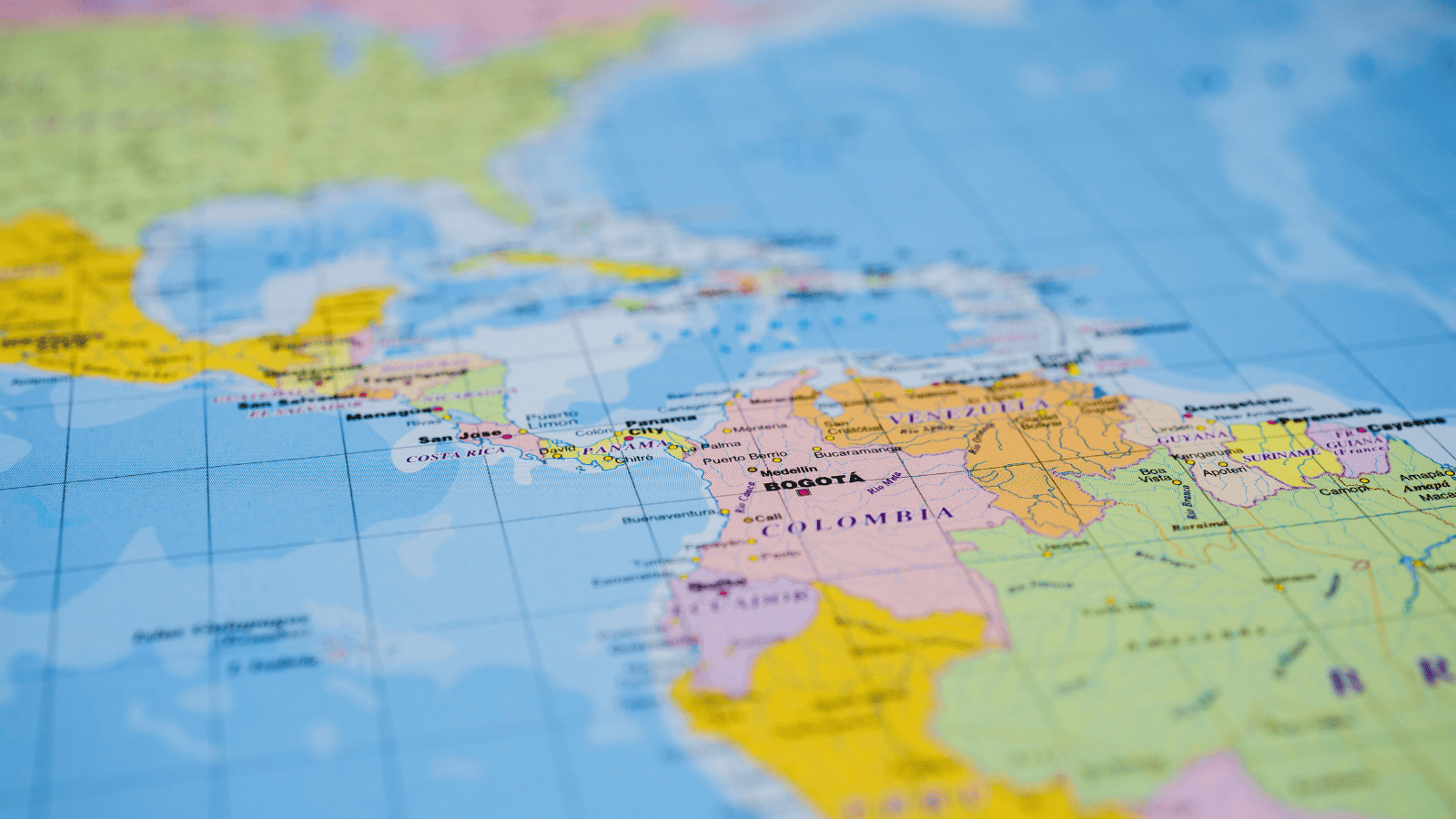
Towards a green EU? Not without Latin America
The European Union (EU) needs to strengthen its ties with Latin America

With the upcoming European elections drawing near and political attention shifting towards farmers’ protests, as discussed in our last blog, debates around the European Union’s (EU) energy policy have also undergone a notable shift.
During the 2019 election campaign, climate and energy transition took center stage, fueled by movements like “Fridays for Future” led by Greta Thunberg. Environmental activism boosted awareness and pushed climate policies to the forefront of political agendas globally, including within the European Commission. However, disrupting events such as the war in Ukraine have reshaped priorities towards ensuring energy security and affordability.
In 2019, the European Commission reinforced its dedication to addressing climate change and environmental issues by adopting the European Green Deal, an ambitious strategy aimed at making Europe climate-neutral by 2050. To meet the goals set out in the Green Deal, the Commission introduced the Fit for 55 Package, a series of legislative initiatives that set legally binding climate targets for all key sectors of the economy. Those measures were designed to revamp the EU’s energy policy, speeding up decarbonization and accelerating the development of renewable energy sources in the EU.
Central to this package is the goal of reducing greenhouse gas emissions by at least 55% by 2030, compared to 1990 levels. A significant increase from the previous target of 40% reduction, which underscores EU policymakers’ commitment to accelerating efforts to achieve climate neutrality in the EU.
Over the last years, the EU energy market has been facing multiple challenges from recent global disrupting events to underlying structural issues. Electrification emerges as a significant factor among them.
While it serves as a crucial facilitator for transitions such as electric mobility and digitization, it simultaneously exacerbates concerns about grid congestion. No matter how sustainable the source, can our existing electricity transport and distribution networks take up the charge?
Local acceptance is also emerging as a challenge. Although needed to improve Europe’s energy security, certain renewable energy sources such as onshore wind and solar farms are met with increasing resistance. That undermines their deployment potential and their contribution to more sustainable energy generation, whereas more stakeholders call for switching off gas.
While the Covid-19 pandemic had a large impact on the European energy sector, as lockdowns and travel limitations reduced energy demand and caused oil prices to decline, even greater disruptions were caused by the war in Ukraine. EU sanctions on Russia exposed Europe’s vulnerability to energy supply disruptions, and especially, its strong dependence on Russian gas imports. Energy supply uncertainties led to skyrocketing prices, resulting in higher costs for businesses and households changing political debates to focus on energy affordability and security.
In addition, higher energy costs threaten Europe’s industrial competitiveness compared to other regions with cheaper energy or higher government support. To address this challenge, the EU introduced the Carbon Border Adjustment Mechanism (CBAM), which will apply to all industries by 2030, leveling the playing field by imposing a CO2 tax on importers.
Looking ahead, Enrico Letta’s report, which will influence the EU’s strategic agenda for 2024-2029, offers recommendations and insights crucial for continuing building the EU energy market and policy.
Letta advocates for a more interconnected EU energy market, with stronger cooperation among Member States and a focus on infrastructure improvements. The report proposes several strategies to achieve this, including investments in cross-border infrastructure, aligning regulations across Member States, and increasing collaboration. It also calls for an acceleration of the adoption of renewable energy sources and improved energy efficiency through increased investment, supportive policies, and plans to address social and economic concerns caused by the transition away from fossil fuels.
In the run-up to the 2024 European elections, political parties across Member States are championing common priorities that will shape the EU energy agenda for the coming years. While Renew Europe advocates for reducing fossil fuels, The Greens and The Left call for their complete phase out. Circular economy is also a central topic for the EPP and The Greens, the latter proposing adopting mandatory sustainable requirements for businesses, and further green taxonomy measures.
Moreover, current energy prices have become a major concern for European businesses and households. Different political parties are addressing this issue proposing diverse solutions. Socialists focus on ensuring accessible energy through market reforms, whereas The Left proposes redistributing energy company profits via tax reforms to share benefits from high energy prices among the population.
The EPP supports market integration between electricity and gas and local investment alignment to enhance efficiency and lower prices. Conversely, the Identity and Democracy (ID) Group blames EU policies, especially the EU Green Deal, for price hikes and has initiated a petition titled “Stop the unfair rise in energy prices due to EU policies!” In addition, some groups such as Renew Europe are addressing the current need for increased public and private collaboration and investments in grid capacity and storage.
At the centre of the economy, energy will remain a priority of the next EU mandate with the ambitious objectives outlined in the European Green Deal’s “Fit for 55 Package” serving as crucial benchmarks for ensuring the region’s energy security.
However, achieving these targets will require meticulous planning and implementation. Strengthening Europe’s competitiveness will be a primary focus of the next Commission mandate, with competitive energy prices being essential for the vitality of the energy industry and overall economic stability. A challenge remains that should focus the Commission’s attention for the next term: how to effectively finance the energy transition and channel more private investments into energy infrastructure? Balancing these priorities will be key to the EU’s success in the coming years.


The European Union (EU) needs to strengthen its ties with Latin America

The entrance of this digital euro and its related financial policies will

Attilio Caligiani is Partner at the Brussels office of Hague Corporate Affairs